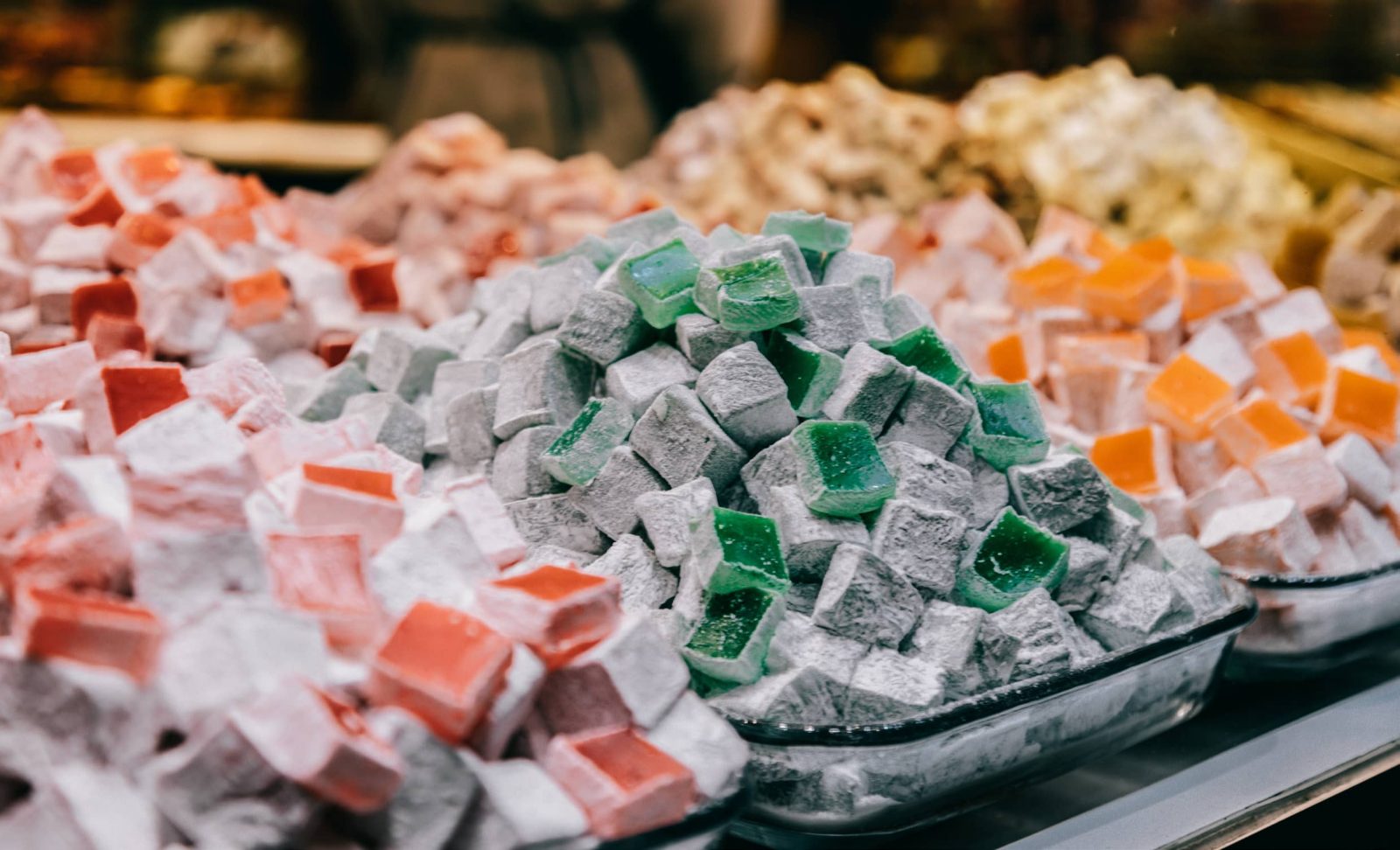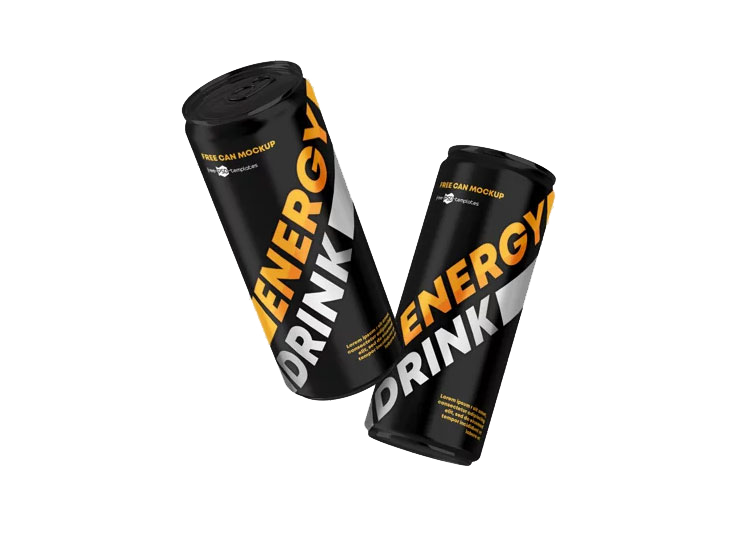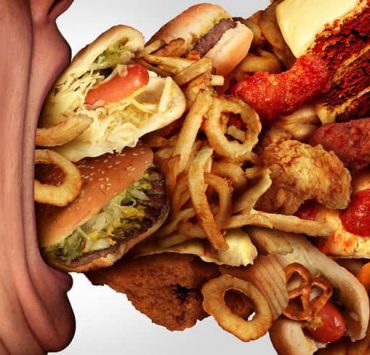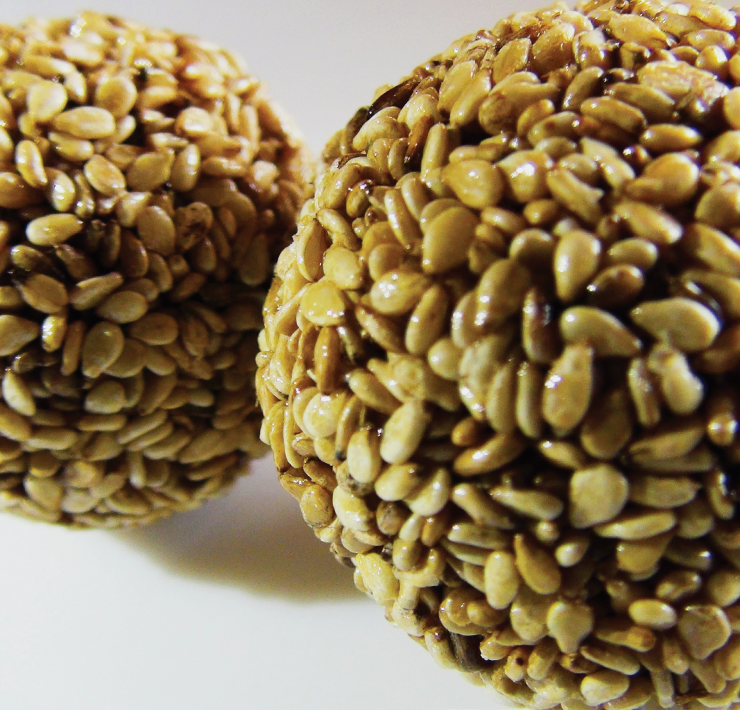CUTTING DOWN ON SUGAR

Chioma Phillips is the Editor of Msingi Afrika Magazine and…
Oh, Sugar!
I watched a documentary called Back to Eden on the backtoedenfilm.com website (it’s also available on YouTube). The film documents various aspects of Paul Gautschi the American gardener and arborist’s successful efforts to restore a type of farming that produces nutrient-dense, organic foods. It’s really inspiring and when you have some time to spare I highly recommend that you watch it. He also sells heirloom seeds in case you’re interested. No, he doesn’t know me – I’m just really passionate about life being restored to the earth. Just as an aside, you may be eating organically grown, non-GMO food that has very low nutrient quality or even trace chemical elements and what he shares can actually help remedy that. So, what does that have to do with sugar? Well, visitors to his farm are allowed to forage and sample some of the fruit and vegetables that he grows using his no-till, little or no watering method and every reaction, every single time is, “Mmm that’s sweet!” Also, the fruit and vegetables are just dripping with water from the inside. When he was commenting about it, he said, that is the natural way of things, the sweetness in the plants. God created it that God wants us to enjoy the sweetness of the earth (Mr Gautschi, if you are reading this, I may have paraphrased a lot, forgive me!). Whatever the exact words of his comment were – you can find them in the video – they just stuck with me. Allow me to explain why… in my own roundabout way.
I hate fads. I hate trends. I hate them. I hate them because more often than not the people participating in fads and trending things and whatnot are doing so in order to fit into something or so as not to miss out on something. In other words, they are not acting out of their own judgment, preference, identity, purpose, mandate… nothing! It is mindlessness like this that is finishing Afrika and the world. See, if you take part in some fad or trend because it contributes in some way to the fulfillment of your role upon the earth – it’s cool. But if you’re wearing red because “That’s what they do on Val’s!” We need to talk. Forex trading, Bitcoin trading, veganism, vegetarianism, low fat, keto, no fat, paleo, some new workout regimen, this gym, that meditation, this pastor, that prophet, breeding quail, selling quail’s eggs, body butter, natural soaps and whatever else there is out there come and take the world by storm. Oh so and so is doing this and they are making good money, let’s try it. Oh one person or the other has done this and they lost so much weight, let’s try it. Oh everyone is doing – let’s do! Do you know what that is? Herd mentality.
So when veganism became a thing I started to watch what was happening around it to see if I could pinpoint the source and purpose. I saw people, some who benefited immensely healthwise from going off meat, I heard those who said that God’s original plan was for us to only eat the plants, and then I saw the Hollywoodians (society calls them Hollywood Stars – I don’t)… the Hollywoodians emerged from the woodwork pushing the vegan lifestyle and connecting it to the other thing they don’t want you to look to closely at – climate change and global warming and I said, “Oh. That’s PR 101. Put your message in somebody else’s mouth a.k.a. 3rd party endorsement.” They won’t tell you about the heat being generated by underwater volcanoes and stuff, but they will say the temperatures are going up and the farting cows and bulls of the beef and dairy industries are a major cause – even while China is creating a sun hotter than the one God made. But that’s not today’s article.

So, when we found an article online on sugar that I wanted to publish verbatim, my husband asked me to look at it again and see how to make it better fit the Afrikan context. God bless that man, I’m so grateful he had me pause and relook because it helped me to just start this conversation with you from scratch.
I’ve learnt that whenever there are opposing viewpoints on a subject matter it is better to step aside from both/all, pause and understand what’s going on, rather than to pick a side and that’s what happened when I started to write this. I found it was like the dairy debate – on the issue of animal milk, some health experts say, ‘it is not good for you, stay away from it’ – other health experts say, ‘raw animal milk is very beneficial as long as the animal is healthy, grass-fed and not stuffed with antibiotics and other things’ and the dairy industry says – ‘drink our milk, it’s fantastic!’ Then you think back to what our people did back in the day and how cows, goats and camels were delivering the white stuff to families for generations and you go, “Hmm!” So it is with sugar, there are those who say, ‘it’s evil, to be entirely avoided at all costs in all its forms organic or not’, others say, ‘raw sugar is beneficial, it is only minimally processed’ and the sugar industry is like – ‘use our sugar it’s great! Sugar even comes from plants!’
So many interests, so much bother… so what on earth is sugar? I had to start right at the beginning to sort through the mess. I went to Britannica.com and they said: “Sugar, any of numerous sweet, colourless, water-soluble compounds present in the sap of seed plants and the milk of mammals and making up the simplest group of carbohydrates. The most common sugar is sucrose, a crystalline tabletop and industrial sweetener used in foods and beverages.” Mammals… that’s the grouping where they also put humans; they… the ones who believe we are animals. I’m not. They also say, “Carbohydrates are formed by green plants from carbon dioxide and water during the process of photosynthesis. Carbohydrates serve as energy sources and as essential structural components in organisms; in addition, part of the structure of nucleic acids, which contain genetic information, consists of carbohydrate.”
So sugar – real, original sugar – is naturally occurring in plants and serves as an energy source, an essential structural component… I’m not talking about the one in your sugar jar, I’m talking generally about sugar, which is: glucose, fructose, galactose, lactose, sucrose, maltose and starch in all their mono, di and polysaccharide complexities in their natural form. That’s sugar. Because that’s where they get you with their very clever advertising and paid editorials.
Okay. Then we come to the thing that man did which we shall refer to as man-put-his-hand-in-it-sugar or MH Sugar, for short – for purposes of this article. MH Sugar’s aim is to sweeten dishes for domestic and industrial purposes. A lovely lady called Rosemary, who I’ve known for a large number of years, told me recently how they used to use sugarcane in the village when she was growing up. It was kind of the way people use lemongrass. Wash it, peel it, chop it up into small bits and toss it in the pot with the tea and boil it. You can smash it a bit so it gives up its sweet essence. It worked to sweeten the brew quite nicely. This other thing people do now was not known to them. It seems it was the Indians from Asia who discovered how to create some form of crystallized sugar from cane juice (for ease of transportation) that made the world realize that this could actually be a thing. It became such a thing that now we have raw sugar, dark brown sugar, light brown sugar and white refined sugar, which are all processed from sugar cane. There’s also powdered sugar which is ground refined white sugar mixed with about 3% cornstarch for anti-caking purposes. Remember starch is sugar. White sugar has basically been stripped of all nutritional components found in sugarcane and is comprised of glucose and fructose. We have sugar-beet sugar, coconut palm sugar and we have fructose which your own fruits may not recognize since it is synthetically processed from corn, sugar-beets and sugarcane to make a syrup that is about 90% fructose and can be diluted to make things like high fructose corn syrup which is about 50% fructose.

There’s a huge amount of MH Sugar that is used for domestic and industrial purposes today and these are added in varying quantities by the manufacturer or chef. Naturally occurring sugars like honey and over 50 categories of MH Sugars are what you find in processed foods like ice cream, breads, soda, cakes, cookies, sauces and condiments (like ketchup), candy, cereal, cereal bars, granola bars, nutrition bars, muesli, processed meat, canned fruit, juice drinks, sweetened yoghurt, salad dressing, snack foods, boxed dinners, energy and sports drinks, jams and jellies, coffee creamer, some restaurant food. It is used as a flavor or texture enhancement or to increase shelf-life. These include agave syrup, molasses, dextrose, maltose, corn sugar, high fructose corn syrup, maltodextrose, glucose, cane juice crystals – to name but a few. These are what are referred to by the name ‘added sugars’ as opposed to those which are found in nature inside the plant or inside the honey before it’s added to products. These are the ones that have attracted the attention and drawn the ire of those in the health sector and deservedly so… because the sugar and/or food industries did not reveal and in some cases were found to have deliberately paid to not only conceal the negative effects of what I am calling MH sugar on the human body but to even blame these effects on fat i.e. fatty foods.
Most of these added sugars contain glucose and fructose. Glucose can be metabolized by nearly every cell in your body, while fructose is metabolized almost entirely in the liver where it is broken down into fat, uric acid and free radicals. Some of this excess fat is stored in the liver and some is distributed to the belly and internal organs, some of it travels in the blood vessels and can form some kind of fatty plaque – the uric acid and free radicals cause their own problems. Added sugar has been blamed for lowering immunity, obesity, metabolic syndrome (a clustering of at least three of the following five medical conditions: abdominal obesity, high blood pressure, high blood sugar, high serum triglycerides (fat in the blood), and low serum high-density lipoprotein), non-alcoholic fatty liver disease, cancer, hyperactivity, diabetes, heart disease and dental caries. There are those who have also made links between the consumption of added sugar and the increase of triglycerides in the blood vessels as being due to the effects of sugar on gut bacteria. It has been over two decades since health practitioners sounded the alarm about the amount of sugar contained in soft drinks – not to mention the assortment of chemicals – and the adverse effects of these on the human body. Yet these companies seem to continue to thrive.
As Vishen Lakhiani of Mindvalley puts it, “Coca-Cola is a company that basically exists to take high fructose corn syrup and market it as happiness in a red can. To brainwash billions of people to consume, drink and put it in their bodies a substance that is destructive to human health. Coca-Cola has engaged in one of the biggest forms of mass brainwashing known to man. It has funded research that denies the adverse effects of sugar on the body. And everywhere it goes… Obesity, diabetes, and other health-related issues follow. Will we as a species rise up and start seeing Coca-Cola in the same way we view big tobacco?”
According to Prof Peter Saunders, “While sugar has always been part of the human diet, it is only in modern times that we have started to consume large amounts of free sugars, i.e. sugars that have been to some extent refined. This includes the sugar that we add when we are cooking or put into our tea or coffee, and the surprisingly large amounts that manufacturers add to soft drinks, sweets and also other foods we don’t generally think of as sweet, such as many ready-made meals. A tablespoon of ketchup contains roughly a teaspoon of free sugar and a single tin of soft drink may contain as much as ten teaspoons. The sugars in fruit juice and honey are also free; in honey the refining has been done by the bees. Free sugars have to be considered separately from those naturally present in fully unrefined forms because they have a greater effect on health.”
In his article, Professor Saunders goes on to explain that the WHO recommended a daily intake of free sugars as less than 10% of total energy intake with a conditional recommendation that the proportion should be less than 5%. 5% would translate to about 6 teaspoons of free sugars per day for anyone 11 years or older and less for young children. He says further that the food industry (whose fortunes are obviously firmly tied to those of the sugar industry) has been lobbying against the WHO recommendations saying that the real problem is too little exercise and that calories are just calories therefore sugars should not be singled out in general nor soft drinks in particular, saying that a can of Coca-Cola has calories equivalent to two slices of whole wheat bread that can be burnt off by a brisk 20-minute walk.

Saunders has this to say in rebuttal, “Neither argument stands up. Think how hard it can be to lose a few pounds, and if you do, how hard it is to keep yourself from gaining it back. That is because there are mechanisms that actively regulate your weight. It’s as though your body decides what your weight should be, and does its best to counter any change in how much you eat or how active you are. So it’s not just a matter of subtracting the energy you use in exercise from the calories in the food you eat. The question is also about how what you eat and what you do affect the weight controlling mechanisms, and despite years of research we still have only a partial understanding of them… walking for an extra 20 minutes every day isn’t going to take 15 pounds off if you keep it up for a year, whatever the food industry says. While we don’t yet know how weight is regulated, we do understand how some of the mechanisms work. For example, when your blood glucose is low, you feel hungry. After you have eaten, your blood glucose rises and you no longer feel hungry, so you stop eating. This clearly contributes to matching your food intake to the amount of energy you are using.
The rise in blood sugar does not, however, depend only on the number of calories in your meal. To allow for this, nutritionists have developed the glycaemic index (GI), a ranking of carbohydrates according to the extent to which they raise blood sugar levels after being eaten. High GI foods such as those containing free sugars and also potatoes, white bread and white rice, are broken down quickly and cause rapid increases and then decreases in blood sugar. Low GI foods, including most fruit and vegetables, pulses and wholegrain foods, are digested and absorbed slowly, and the rises and falls in blood sugar are smaller and slower. That makes these foods better for weight control because they help control appetite and delay hunger. They are also better for diabetics, by the way, because they also do not cause large increases in insulin levels.
This illustrates why free sugars have been so important in the rise of obesity. The worldwide increase in the consumption of soft drinks has been especially important because we seem to be able to drink large quantities without dulling our appetites. This has been especially relevant in Mexico, which has an especially high rate of consumption of soft drinks and where obesity is rising faster than anywhere else in the world.”
He goes on to explain that weight is also affected by gut microbiota the proportions and diversity of which are determined in the first three years of life and can be negatively affected by the use of antibiotics in infancy. He says, “There is increasing evidence that the use of antibiotics, both in infancy and thereafter, can contribute to obesity. This should not come as a surprise, because one of the chief reasons for the overuse of antibiotics is that they are so often fed to farm animals not to combat infection but solely to promote weight gain.”
Wrapping up
As you can see, MH sugar is not the only thing causing problems in the human body, or causing weight gain (the antibiotics thing really caught my attention). Also people are still trying to understand what causes this whole weight gain thing – typical of man and modern science to assume they can figure out this complex system of ours using a ‘blind men and the elephants’ approach. Even though MH sugar is not the only villain – it is a villain. But there are ways to escape its nasty ways – reduce or eliminate its intake. As always, the responsibility and therefore the ability to deal with the issue lie with the individual. Simply stop buying it and using it and train your body to be satisfied with what actually blesses it and builds it up.
I read an article by Cynthia Sass on health.com where she said, “While fruit is a natural source of fructose, the sweetener is also bundled with fiber, water, vitamins, minerals, and antioxidants. And in fresh fruit the fructose isn’t concentrated. For example, one cup of blueberries naturally contains about 7 grams of fructose, along with 3.5 grams of fiber and several key nutrients. By contrast, a 12-ounce can of soda sweetened with high fructose corn syrup contains about 22.5 grams of fructose, with no fiber or nutrients.

The fluid and fiber in fresh fruit (in addition to the volume and chewing involved) also positively impact fullness and satiety. In other words, the amount and form of the fructose you consume matter.” In a separate article she had this to say, “Added sugars are anything sweet put into a food for flavor, from the sugar in store-bought ketchup to the honey you spoon into your tea. (Yes, “natural” sweeteners count.) These sugars are concentrated and mostly devoid of nutrients. Although honey, maple syrup and the like have some healthful antioxidants and minerals, they still pack hefty doses of sweetener per spoonful. This means you get a lot of pure sugar—and calories—in a small portion, making it easy to go overboard and cause big problems.”
As you’ve read through this conversation (I call it that because your insight and feedback are welcome), hopefully you’ve seen what I saw when I did my pause and check. I saw that what God made is good because it is whole and it is nourishing. It is sweet, rich in fiber, water, vitamins, minerals and antioxidants and helps get you full as well as satisfied. On the other hand, man-put-his-hand-in-it-sugar as with many other man-put-his-hand-in-it products, technologies and so on, has some issues. For me the fact that my tongue has the capacity to differentiate sweet, salty, hot (peppery), tangy and so on, tells me that my natural food was designed to give me all those amazing taste sensations without any side effects, meaning that what is naturally existing is meant to be sweet and delightful to our palate in addition to salty, peppery, tangy – which is why what Paul Gautschi said just stuck with me and why what I saw in his video made me review what I thought I knew. Sugar, as created, is not evil, harmful or dangerous – sugar as man-put-his-hand-in-it and then defended and then concealed the dangers of in order to make profit off the target market… well – you can make that judgment for yourself.
A lot of the things that we try to flood our plates with are brightly colored artificially, have rich aromas through artificial means and are loaded with a range of artificial flavors in order to give us some kind of satisfaction that, is… artificial. Funnily enough, the colors, aromas and flavors that man puts his hand in and makes his creations mimic are what are found in nature. In the process of that mimicry and enhancement… disaster! Including using artificial taste buds engineered from aborted fetal cells to make sure they get the flavors ‘just right’. I kid you not.
So, it’s not just sugar that suffers from MH, but sugar just gave us a sweet, sweet reason to have this nice long conversation.
Sources: Wikipedia, npr.org, healthline.com, sugar.org, Mindvalley (FB page), i-sis.org.uk, backtoedenfilm.com, Britannica.com, health.harvard.edu, health.com
What's Your Reaction?
Chioma Phillips is the Editor of Msingi Afrika Magazine and the host of Msingi Afrika Television. Her hope is to see the Truth shared, with all who will listen, for the transformation of the people and the continent of Afrika - and the world. She believes passionately in the critical role that Afrika and Afrikans have to play on earth right now and hopes to ignite the spark that will cause them to see and believe who they are, so that they can live out their Truest lives for the remainder of their days.
















